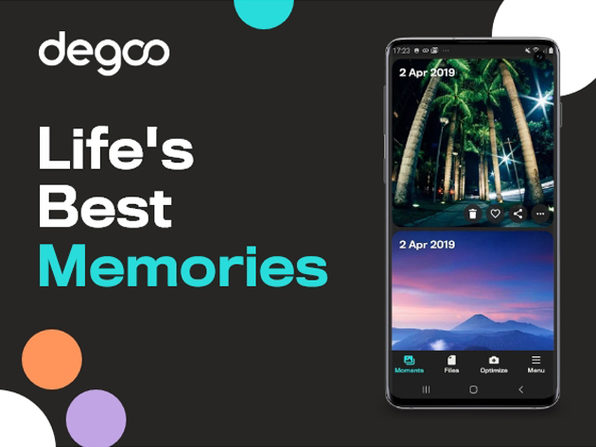1.Millennials have become the fastest growing customer segment within the hospitality industry. Exploration, interaction and experience are the major focus of Millennials who are willing to pay more for a greater experience. They are looking for a unique and novel experience and this has and will continue to command change within the market. Moreover, this customer segment is interested in utilizing technology to do things that many others have become accustomed to doing manually: checking in at hotels, paying their restaurant and bar bills and looking up places to eat, shop and play to name a few. In addition to wanting technology, Millennials have no problems speaking up. If what they are seeking is not handled to their liking, they will turn to Twitter, Facebook, Yelp or TripAdvisor to voice their complaints.
Hospitality and Industry
Digitalization example
-
-
2.Customer service will make the list every year but this year it must be a combination of “high tech, high touch”. Service today must include enabling guests to be self-sufficient. As an example, if a guest wants to find information using his/her smart phone, providing an app or mobile website that accommodates that information will appeal to many. The rise of this digital traveler requires the hotel industry to balance the expectation of personalization while enhancing the need to remain independent. For those who are either tech-challenged or prefer more service, that service must be genuine and of a high quality – good recommendations whether they be for food, shopping or activities delivered by a truly caring team member.
-
3.Health and wellness trends will continue to drive customer decisions. Healthy food options are one of the easiest ways to cater to this trend. The Chicago Marriott O’Hare recently implemented a test pilot in partnership with Farmer’s Fridge, a Chicago start-up, to provide a healthy vending machine. At the suggestion of a guest, soda, candy bars, and ice cream were replaced with a “detox salad” made of kale, quinoa, Greek yogurt, berries and locally sourced honey. Although the response to the healthy vending machine has been positive, the hotel’s best-selling food item is still the Marriott burger. There is a need to balance health and wellness with tasty options that are cost effective. Repeat guests especially enjoyed the opportunity to provide a consistent program to maintain their exercise routine while away on business, not to mention having a nice “chat.”
-
4.Booking more profitable business is critical as more revenues result from strong increases in occupancy levels, average rates and revenue per available room (RevPAR). This may suggest more profits, but the growth in distribution costs as well as other operating costs such as health care and the minimum wage increases can stunt profit growth. While the revenues are coming first and foremost from RevPAR growth, there are additional ways to increase both revenue andnet income. One is by less reliance on the online travel agencies (OTAs). By directing guests to your hotel’s website and telephones, the savings are abundant. The digital distribution costs are soaring and the number of players entering the market to compete with OTAs is rapidly rising (think Google, Facebook, Apple, TripAdvisor, Amazon and more). The key is to negotiate with your distribution team (yes, the OTAs can be an integral part of your team) and reduce your commissions. Then make certain that you have a strategy in place to earn the repeat business of every single guest…and get them to book direct next time. Think incentives!
-
5.Innovative technology, mobile check-in, and seamless connectivity across platforms and devices are no longer the future, they are the present. Today, mobile apps are being used as everything from a digital concierge to accessing big data. Geo-location can make it easy to sell guests something that is literally right in front of them. In a recent survey by Software Advice, guests desired local restaurant and hotel restaurant discounts when looking for deals as well as maps with coupons for other deals. At our hotels, we use 1App, which sends guests deals to do everything related to eating, playing and shopping. Additionally, monitoring guest use of the Internet relative to bandwidth can provide a different data set, perhaps one that will drive down your ever increasing costs of providing ridiculous levels of said bandwidth. Most importantly, when looking at the face of a changing consumer today, technology innovation is paramount. As most have heard, Starwood and Hilton will be having guests check in via mobile phone in 2015.
-
6.The sharing economy is a new reality hoteliers are still grasping to embrace. Over the past few weeks we have seen jurisdictions attempt to regulate this reality as evidenced by the San Francisco City Council implementing new legislation providing a legal avenue for Airbnb. Uber, Lyft, and other ride sharing companies are also in uncharted legal territory that will be legislated over the next few years. The challenge here is that users like these services, government legislation is not generally keeping up with these rapid developments, and hoteliers are unsure of how to react. Is Airbnb a complement to hotels or is it a threat to the traditional hotel model? Given the penchant of Millennials to chart their own path and their increasing share of the traveling public, expect to see Airbnb, Uber, and other competitors continue to dominate the conversation. It would be interesting to see if STR is able to capture the impact of Airbnb and incorporate it into the competitive set of hotels, particularly in dense, urban environments where the impact may be the greatest.



